Kindness to Cats is a Classical Virtue
What we owe cats (and their caretakers) who call our communities home
The Palace of Knossos on the Island of Crete is the oldest known castle in Europe. The Minoans built it around 2,000 B.C. Although the original structure remains only as rubble due to a nearby volcanic eruption and attending earthquakes, the Minoans built a second palace on the same site. With 1,000 rooms, five floors, floor-to-ceiling frescos, beautifully painted amphoras, clay pipes carrying drinking water, rainwater, and wastewater, the oldest known road and throne, and at the time, the only flushing toilet in Europe, it must have been a marvel to behold in its day. Over 4,000 years later, it still inspires awe.
Although most people know little about the Minoans unless they seek the information out — even Greek schoolchildren are not taught much about them — what we all do know is the myth of the minotaur who ate Athenian children in the labyrinth (1,000 rooms!) that was Knossos.
But the story I want to tell is not a history lesson or a regurgitation about how Jennifer, my wife, and I spent our summer vacation. This is about cats. Specifically, it is about the cats of Greece, the cats of Australia, and the cats of America. It is a compare and contrast between good and evil, kindness and sadism, and the ethical and scientific failure of environmental conservation and its moral panic over cats. And, like the Greek myths, I will start in media res — in the middle of the story — with the restaurant owner putting his hands on my shoulder in an act of reassurance. He saw that I was concerned about some juvenile community cats and wanted to impress upon me that I had nothing to worry about.
When Jennifer and I arrived at Knossos to take a tour, we had already been in Greece for some time and got used to seeing street cats — at the Acropolis, the Oracle at Delphi, the scuba diving shop, the cafes we visited, and our hotel. For those who have yet to visit, cats are everywhere, which takes some getting used to. It is no exaggeration to say that Greece is the Land of Cats. Many are house pets, but unlike in the U.S., where roughly 60% of cats are indoors only, the vast majority go outside. The rest are free-living, though most of the cats we saw had ear notches, indicating they had been sterilized, vaccinated, and are cared for by volunteers. We met or saw some of those caretakers. We also met or saw a lot of the cats, including,
Tree Cat:
Scooter Cat:
Hotel Cat:
Cafe Cats:
Thissio Cat:
And Acropolis Cats (with a caretaker in the background, in blue tights and sneakers):
But the ones at Knossos were younger cats than we were seeing, and though they appeared “street smart” (avoiding cars), they also appeared to be begging for food. Unfortunately, the only businesses near the Palace are souvenir shops, a kiosk selling cigarettes, candy, and postcards, and a restaurant selling traditional Greek food. I decided to go to the restaurant and get food for the little cats while we formulated a plan to help them. But when I went to order something, the owner informed me that he was not allowed to do “take away.” If I wanted food, I had to sit and eat it there. I became upset.
I told him the food was not for me. It was for some cats near the parking lot who appeared hungry. I just wanted to get something I could feed them and implored him to break the rules. That’s when a smile crossed his lips. He grabbed me by the shoulders and looked me intently in the eyes to ensure I got the message. He told me he knew where the cats lived and that they are well-fed. Since the tourists are not used to seeing cats, they are easy marks and often give them food. “Do not worry,” he assured me. “They are taken care of.” And for good measure, he told me he would sell me the food if I wanted it, but it was not necessary. When I returned to check on the cats, I found the house they lived in and the food bowl. The little rascals were eating and playing just outside.
Here is a short video of me chastising one of the “offenders”:
Of course, as an American with American ideals, I want all “friendly” cats to have homes. I was not offended that they were allowed outside, as I have never subscribed to an “indoor only” philosophy. Indeed, when I ran a shelter in rural upstate New York, I encouraged adopters to let the cats go outside if it was a relatively safe area for many reasons, including preventing boredom and obesity, but also so the cats could run away if the home was not good for them. That said; I also do not believe that we should recreate Greece in America, which is what Best Friends, Austin Pets Alive, and other corrupt, lazy organizations are threatening to do by encouraging shelters to turn away cats and kittens through a program called “Human Animal Support Services” (community sheltering), which I have criticized at length elsewhere. (The No Kill Advocacy Center also has an excellent policy guide called “Give Me Shelter,” available by clicking here.)
As in politics, the best approach is somewhere in the middle: with friendly cats provided homes and cats who are not social with people sterilized and returned to their habitats. But that is for the people of Greece to determine, so long as they do not trample on the rights of cats to live and to human protection. In more ways than one, the story of the Greek cats begins in media res: they are already there. That is their starting point, but it is not ours.
And I know this: everyone we met — from the scuba divemaster to the Acropolis tour guides to the restaurateur — liked the cats, fed the cats, and watched over them. It is, therefore, no surprise that the Greek government has resisted E.U. calls to round them up.
Not so in Australia.
In a response that is as far away from Greek kindness as one can go, after already killing millions, the Australian government is once again “declaring war” on cats, releasing a draft action plan that includes:
Allowing people to shoot cats for recreation;
Killing cats themselves;
Killing cats using sadistic and cruel methods like suffocation, toxic gel, and introducing disease; and,
Imposing a curfew on cats and killing those found outside during the curfew.
Such cruelty is not motivated by saving birds or wildlife. When nativists — self-proclaimed “conservationists” pursuing a “native species” agenda — call for killing cats, they are motivated by a hatred of cats, as killing cats is sadistic, unscientific, hypocritical, and unworkable.
Sadistic, because the methods they employ are ruthless: blunt-force trauma, hunting with bows, hanging and disemboweling, cutting off their heads while alive, suffocating them, and poisoning that causes diarrhea, lethargy, and massive internal bleeding, leading to a slow, painful death over several days.
Unscientific, because it seeks to keep nature in a state of stasis when the geographic and fossil records tell us that natural selection, artificial selection, migration, adaptation, and evolution are inherent to all life on Earth.
Hypocritical, because they force standards on cats they refuse to follow even though human animals are also “non-native,” belong to a species that is the most “invasive” the planet has ever experienced, and cause virtually all environmental destruction, including the decimation of wildlife populations.
Unworkable, because they can never achieve the ultimate goal of eradication. As such, it is a slaughter with no end and no potential benefit: the scientific evidence is clear that removing one species to help another does not work.
In addition to ongoing violence towards animals, their actions also harm children. Given that the link between animal violence and human violence is well-known and well-established, killing animals in the name of “conservation” imprints children for using violence to solve perceived problems. It also causes “profound human suffering” for their caretakers. That suffering is “significant,” leading to grief, trauma, poor physical health, and long-term psychological distress, including profound guilt, loss, and inability to eat. Tragically, nativists don’t care.
But I do. A growing number of biologists and ecologists do, too, by rejecting nativism and the killing it inspires. The people we met in Greece care. And so should everyone else.
One of the most profound legacies bequeathed to us by Pericles, who ruled during the golden age of Athens, was the Acropolis, including the Parthenon. It is a breathtaking symbol of Athenian greatness, which the country’s most famous historian called “sufficient to render the name of Greece immortal in our world.” Pericles would have found irony in it. He once said, “What you leave behind is not what is engraved in stone monuments, but what is woven into the lives of others.”
He needn’t have worried. Classical Greece is thoroughly woven into the lives of everyone who calls the West their home. We owe the Greeks our language, architecture, medicine, science, democracy, culture, and values.
But what will we leave behind that is woven into the lives of others? We can start by embracing Greek kindness and tolerance towards cats, and compassion for their caretakers. Anything less is a profound failure of the Enlightenment they inspired. And Enlightenment values — most notably, the unalienable rights to life, liberty, and the pursuit of happiness for both two-legged and four-legged residents — are the best humanity has to offer the world.


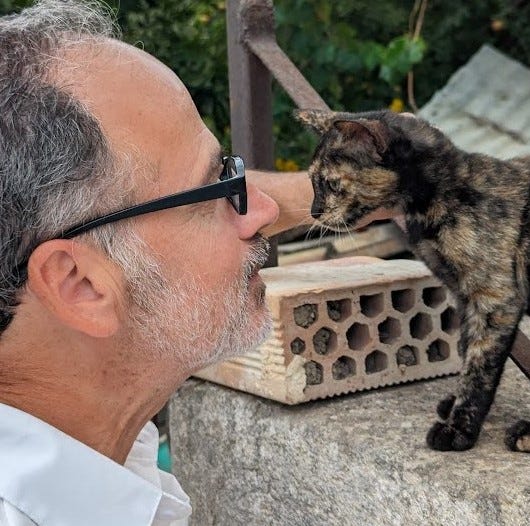
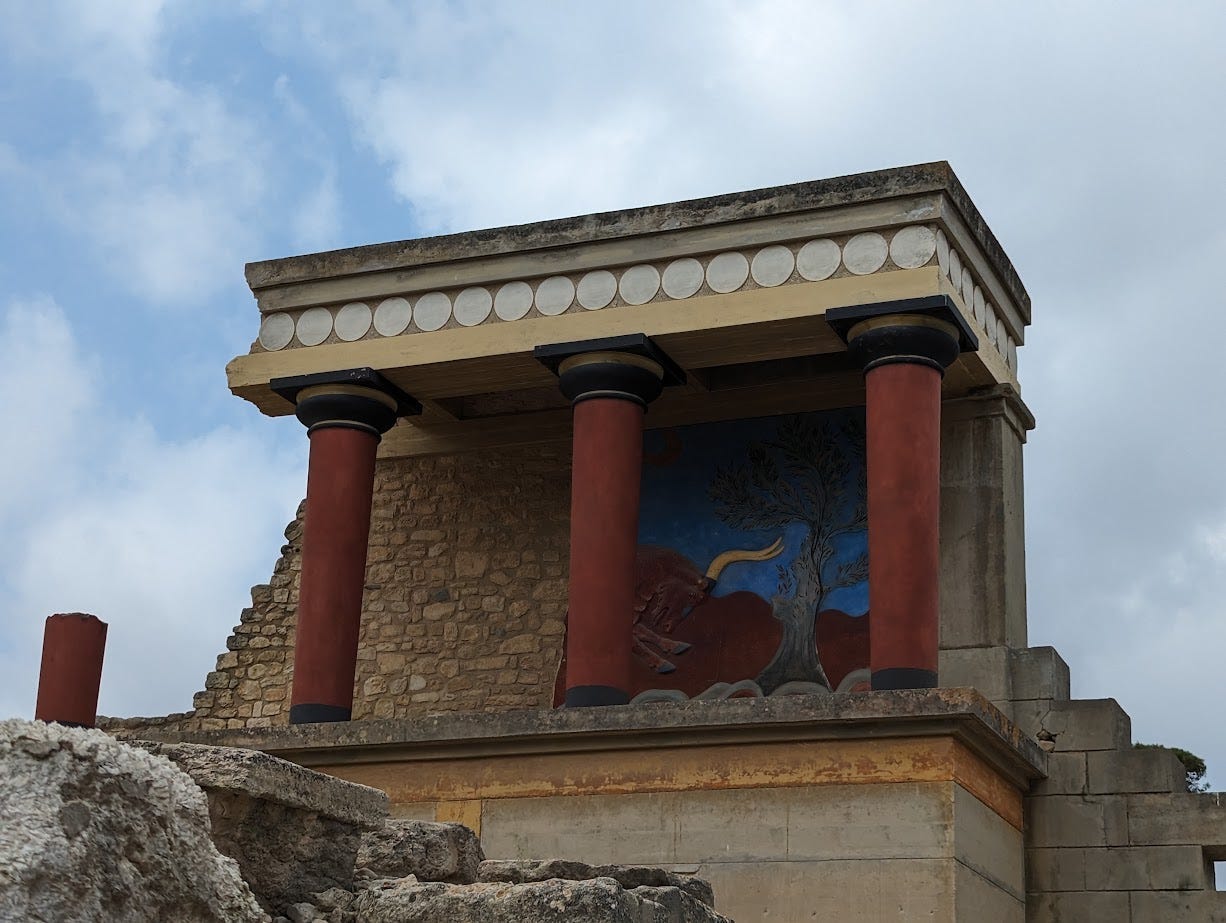
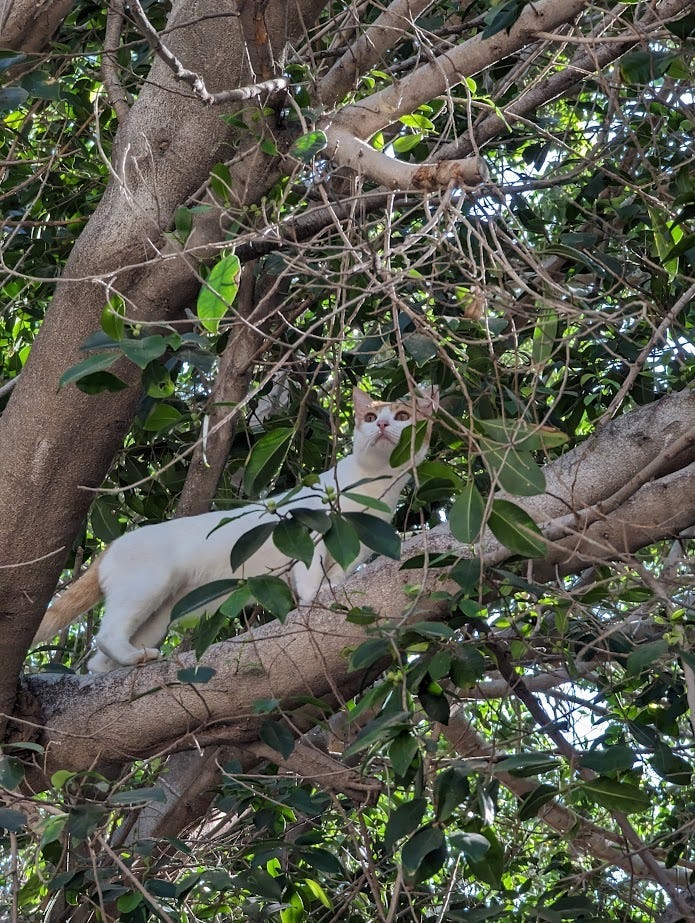
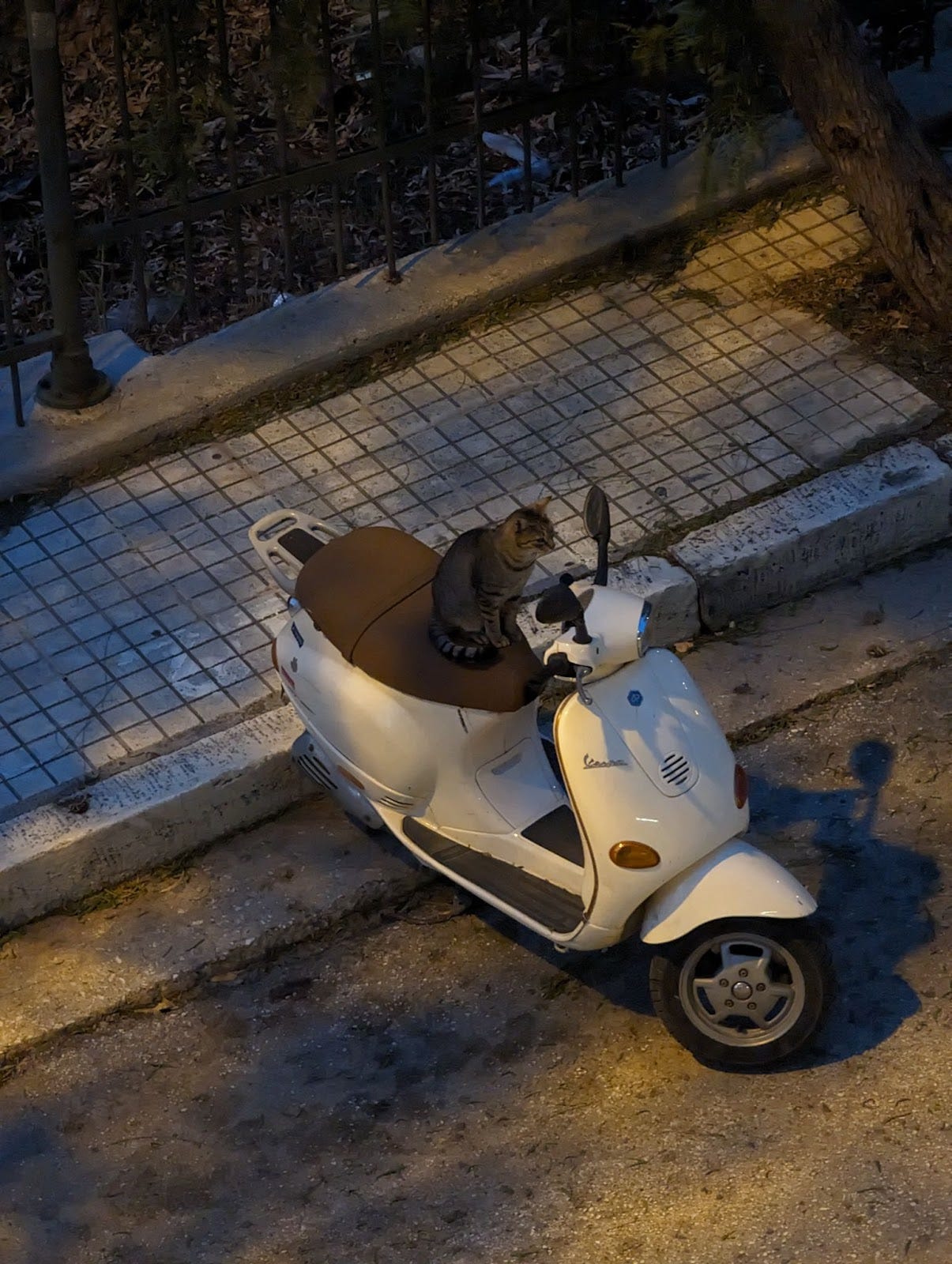

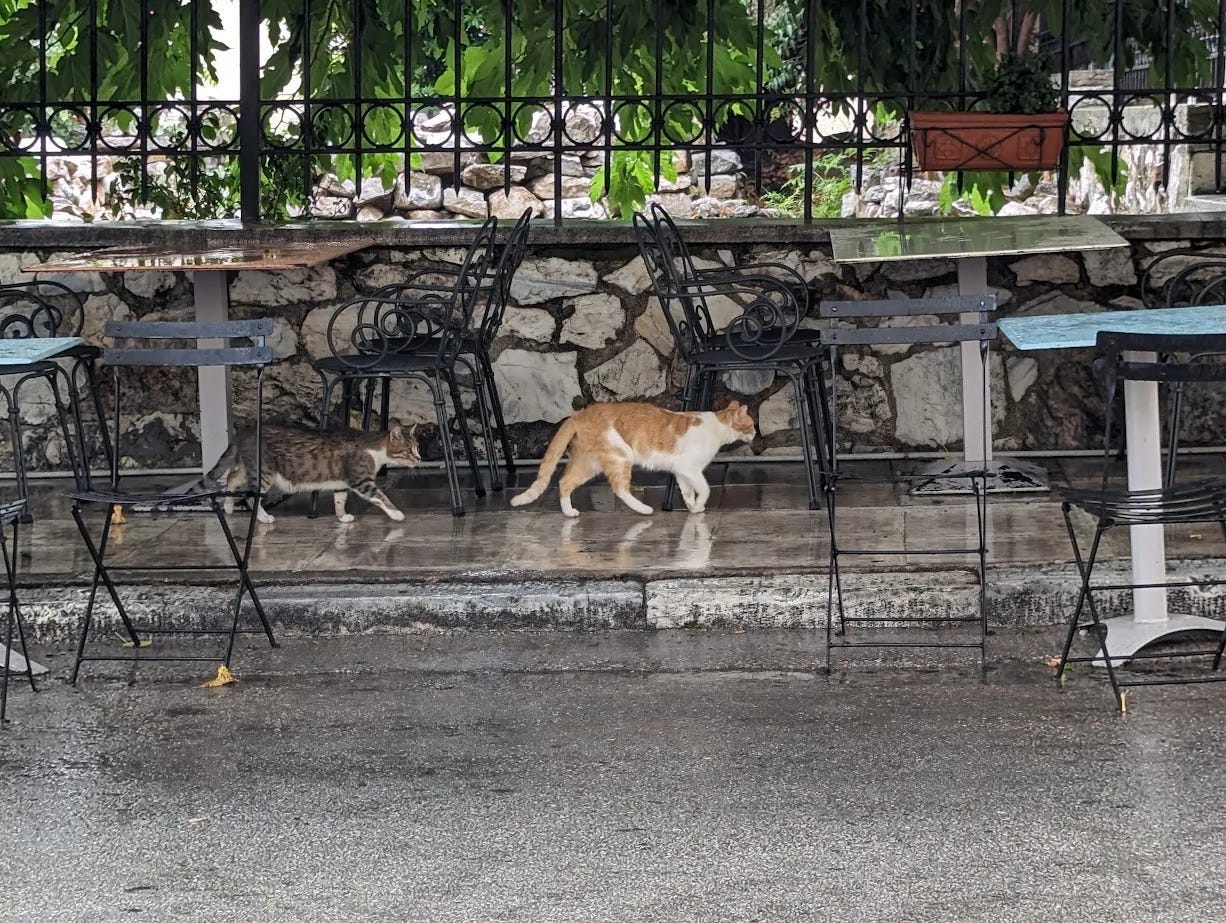
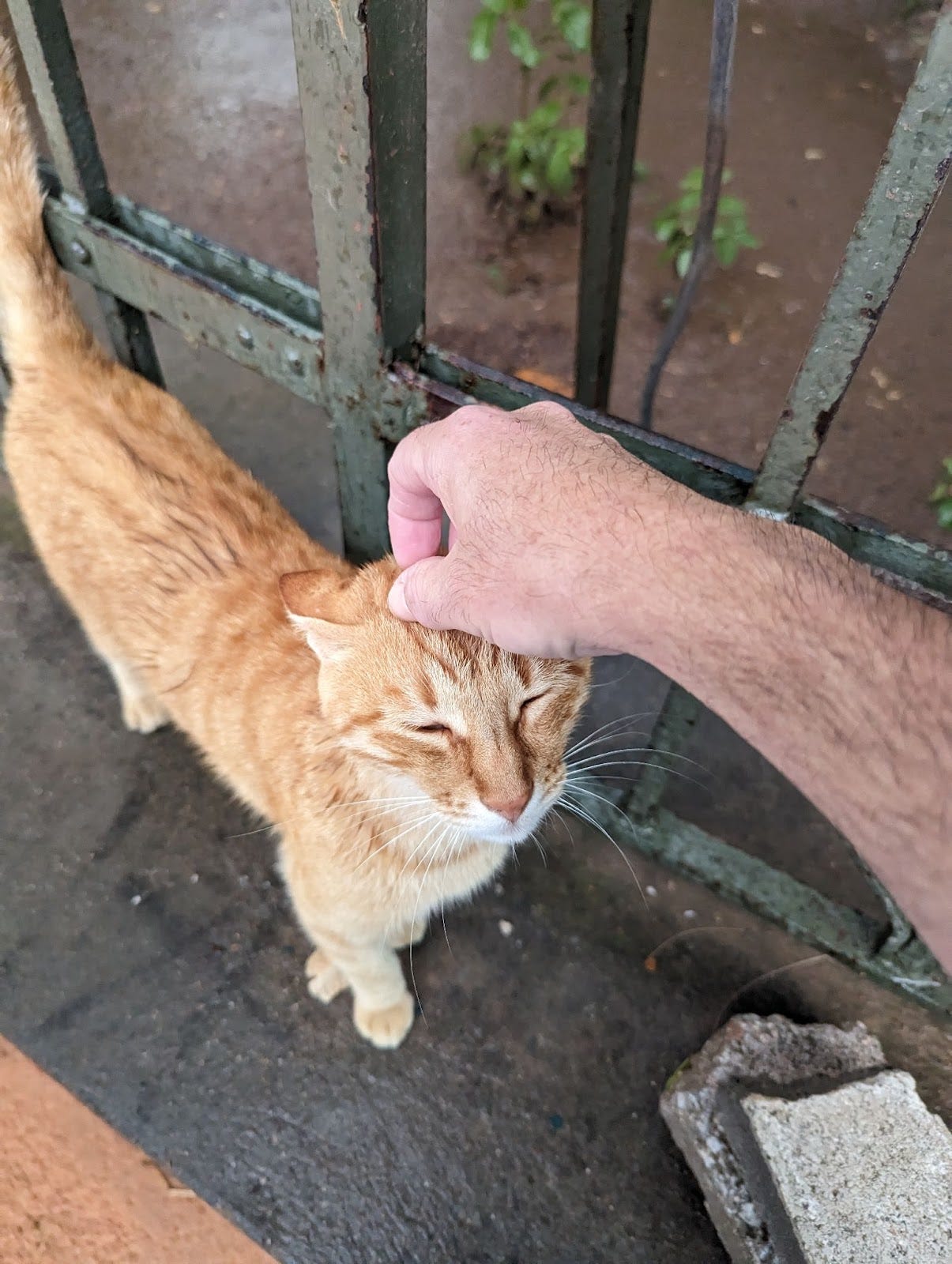
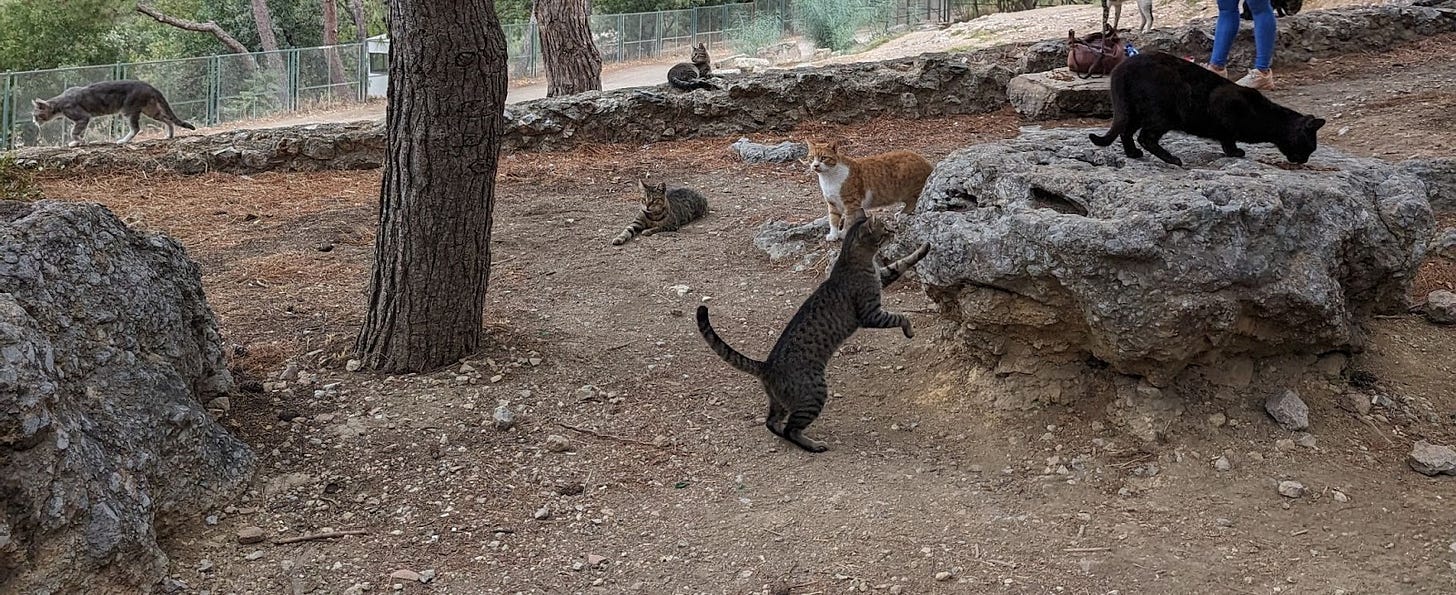

A beautifully written piece and thank you for the heartwarming photos of the sweet little Greek kitties!
A country that treats its animals well is truly a reflection of the hearts and souls of its people.
But it now begs the question: what can be done to stop Australia’s murderous rampage on cats? If its people and government don’t care and in fact condone this violent speciesist genocide, how can non-Australians successfully intervene from the outside and bring a halt to this barbaric cruelty?
What a wonderful article -- thank you much -- How can you not love Greece -- I love Greece -- I'm impressed with this : Greece REFUSES to round up Cats even though EU requested — and Greece is RIGHT — on the other hand, something is very wrong with Australia — we have Psychos making horrific decisions.